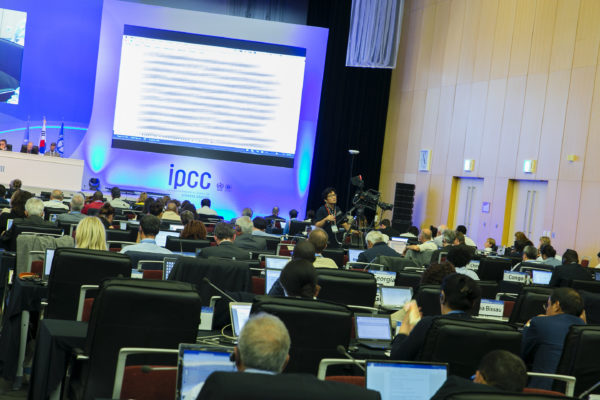Major funding to improve predictions of our climate future

Scientists from the Priestley International Centre for Climate at the University of Leeds will lead a major new EU funded research project to deliver improved information about our future climate and directly inform key policy decisions.
The 2015 Paris Agreement set the reduction of greenhouse emissions as a critical step in limiting the increase in global surface temperature to 1.5–2°C above pre-industrial levels. However, efforts to outline pathways to reduce greenhouse gas emission compatible with Paris Agreement targets have been hampered by uncertainties surrounding mid-century climate projections.
A new 4-year project has been awarded €8 million of EU Horizon 2020 funding to address key knowledge gaps affecting climate projections over the next 30-50 years.
Scientists from the Priestley International Centre for Climate at Leeds will lead a team of 40 researchers from nine different countries, across the EU and Israel, to enhance our understanding of how natural and human factors affect climate change at regional levels, providing essential information to local policy makers.
The project, titled CONSTRAIN, will focus on key climate science knowledge gaps:
- The magnitude and pattern of effective radiative forcing.
- The magnitude of cloud feedbacks and the role of cloud-circulation coupling in determining the pattern of climate change and climate sensitivity.
- The manner in which ocean variability conditions the response of the climate system to effective radiative forcing on different timescales.
The team will translate insights and uncertainties arising from both climate variability and forced response on 20-50 year timescales into improved projections and effective adaptation and mitigation policy decisions. Using innovative streamlined statistical emulators, CONSTRAIN will offer new capabilities to assess a much broader range of climate change scenarios.
Professor Piers Forster, Director of the Priestley International Centre for Climate, said: “Predicting the future climate involves complex and sophisticated computer simulations which can only ever provide information on a handful of possible futures. To properly consider risk, governments, industry, and the public need information on many possible futures. CONSTRAIN will use the complex computer models and observations in a different way: to build up a statistical picture of multiple possible futures.”
The CONSTRAIN project will make vital contributions to key global initiatives: the sixth assessment report of the Intergovernmental Panel on Climate Change (IPCC) in 2021; and emissions targets for the Global Stocktake of the United Nations Framework Convention on Climate Change (UNFCCC) in 2023.
CONSTRAIN is a collaboration between 13 partner organisations: ETH Zurich, Max Planck Institute for Meteorology, Météo-France National Centre for Meteorological Research (CNRM), CICERO, Delft University of Technology, UK Met Office, Leipzig University, National Centre for Scientific Research – Institute Pierre-Simon Laplace (CNRS-IPSL), Stockholm University, Weizmann Institute of Science, Imperial College London, International Institute for Applied Systems Analysis (IIASA) and Climate Analytics.
As coordinator of the CONSTRAIN programme, the University of Leeds has four exciting new positions available. Two Research Fellows, a Policy and Science Manager, and a Project Manager will join the project team in July for a period of four years. For further information on these roles, and details of how to apply, please follow the links below.
- Post-Doctoral Research Associate in radiative forcing and climate emulators, Grade 7 (£33,199 – £39,609 p.a.)
- Post-Doctoral Research Associate in atmospheric circulation, Grade 7 (£33,199 – £39,609 p.a.)
- Policy and Science Manager, Grade 8 (£40,792-£48,677 p.a.)
- Project Manager, Grade 6 (£27,025-£32,236 p.a.)
For further information about CONSTRAIN please contact Professor Piers Forster: p.m.forster@leeds.ac.uk
Featured image by IISD/ENB | Sean Wu
